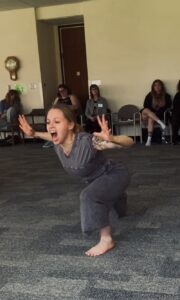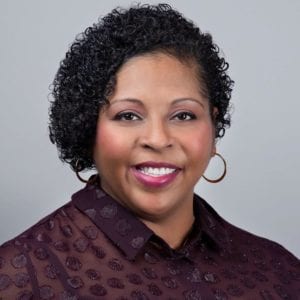Growing up in Northeast Ohio, the first time I heard the word tribe was in reference to the Cleveland Indians. Our major league baseball team is nicknamed “The Tribe,” and it was a common phrase uttered in my household. Like many young Cleveland fans, I was spoon-fed the story that our ball club was named to honor Louis Sockalexis, the first full-blooded Native American individual to play in the major leagues (on the then Cleveland Spiders) from 1897-1899. Of course there is not a great deal of truth in that story, as journalist Joe Posanski unpacks in his excellent 2014 article. Yet any time I heard challenges for the Indians to change their name, my rather conservative family would say, “But it was named to honor the first Native American to play in the major leagues.”
As we say in circles of recovery, anything after but is generally bullshit.
The Cleveland Indians are once again rethinking their name, as are many sports teams that trivialize or demean Native Americans by their moniker. The time is truly now for white people in positions of power to do a great deal of rethinking, and that includes we white folks who’ve grow so accustomed to using the word tribe without fully considering its origins and the intentions of our use. A cursory glance on Instagram reveals memes like Your Vibe Attracts Your Tribe and Find Your Tribe—Love Them Hard. I especially notice this tendency in white women endeavoring to be part of conscious culture, and quite frankly, it’s long bothered me.
As I came of age, I encountered other uses of tribe aside from the nickname of my favorite baseball team, including the twelve tribes of Israel, tribal dance, tribal warfare, and usages of tribe in other Indigenous histories. Ever the word geek, it’s my natural tendency to turn toward etymology. The English word tribe is Latin in origin, referencing the “tri” or three-part organization of the Roman state along ethnic lines. In English, tribe generally refers to a grouping of people who have something in common, whether that be ethnic or cultural similarities. In history and anthropology, the general connotation is that a tribe exists within a larger nation, country, or some other distinct group. As it relates to Native Americans, tribe is a Federal or State government distinction to denote enclaves within the various nations. In speaking with my closest Native American friend about this issue, she shared that she sees tribe more as a colonizing government term rather than a distinction that has actual meaning to her as a Native woman. In their 2001 article The Trouble with Tribe, Chris Love elucidates that there are so many meanings and connotations to the word tribe, it’s difficult to have clarity. If you come from an ethnic background where the word tribe or your personal connection to tribe has a great deal of meaning to you, claim that connection if you chose.
Yet as white people from European backgrounds, do we really have that right? My gut sense is no, especially if our intent in using the word is just to appear more “conscious,” “inclusive,” or even “hip” without doing the real work behind it. I see what progressives and conscious communities are trying to do with the word tribe—viewing it as an extension of the “family of choice” concept that is so vitally important to those of use, especially those of us who identify as LGBT+. Yet there are two problems here: the tendency to get cliquish in the name of consciousness, and very real possibility that we are getting inappropriately appropriative just to sound cool.
When I first heard tribe used in the conscious community, my stomach churned and signaled danger. In 2011, I took a training in a popular dance method at an elite yoga center. Everyone in that community kept referring to themselves as being “in the tribe,” or “finding my tribe,” suggesting that outsiders somehow didn’t get them, or even that outsiders or other divisives were not welcome. This bothered me so much that when members of Dancing Mindfulness, a dance community that I went on to create in 2012, started using the word tribe with regularity, I got worried. I expressed my worry about the cliquish nature of the word to several in our leadership, suggesting that I preferred a term like a community. For me, community suggests room to grow. And yes, I identify as having many members of my family of choice (some from the Dancing Mindfulness community and others from outside of it). Yet I’ve never felt the need to use the word “tribe” to express any of this.
The bigger problem that white people must examine is whether or not we are using the term tribe to appear to gain social capital with others. Is there something more hip about using a word like tribe instead of community, circle, family of choice, or even “my people”? I don’t have a full answer to this question that I’m willing to put out there definitively as I am still doing so much of this work for myself. I am, however, encouraging others who have a tendency to use this word to engage in some inquiry about why and how you use it.
There can be a fine line between cultural adaptation and cultural appropriation, between honoring someone or some group and just using them. Take Louis Sockalexis, the member of the Penobscot nation, whom scores of Cleveland Indians fans maintain that they “honor” by capitalizing on the name and, until very recently, the racist “Chief Wahoo” mascot. Sockalexis was openly mocked and tortured for his heritage during his tenure playing professional baseball, and when he died at the age of 42 after a long battle of what we now know as alcoholism, sportswriters referred to the cause of his career decline and death as “the Indian weakness.” Do we consider this undeniable heritage of pain and trauma when we are quick to defend ourselves as “honoring” a culture? Do we consider this undeniable heritage of pain and trauma when we use a word like “tribe”?
You may be experiencing a degree of defensiveness right now by engaging this question, especially if you are a white person who uses the word tribe or engages in any practice from other cultures, which includes yoga and Eastern meditation practices. My suggestion is to notice what it’s bringing up in you and do the deep digging. Several months ago, I was rightfully called out on how I used a Native American song and practice within a Dancing Mindfulness class. I am grateful to the young Indigenous person who felt empowered enough to do it. Of course, I felt defensive at first, even drawing back to some of the same excuses I heard from other Cleveland Indians fans (e.g., “I was just trying to honor,” or “I want to be inclusive”). The more I sat with the feelings, the more I realized there was work to do and that the young person was correct. Using something without knowing the full truth of the source or, in many cases, getting necessary permission is not okay for anyone who calls themselves conscious.
As someone who teaches and also refuses to copyright my adapted approach to universal practice that is fundamentally Eastern in origin (it’s not mine to copyright), I’ve had to do the hard work around going to the source for teachings while also examining how teachings can be adapted for Western and clinical audiences. I do not have all of the answers and I am sure that my exploration will lead me to discover other changes I need to make if I truly want to be anti-racist. My challenge to you, my friends, is to join me on this journey of self-inquiry and growing more comfortable with being uncomfortable, especially when you are invited to rethink an attachment.















3 Responses
I think we need to do the deep digging even further than you suggest , and learn to love and honour ourselves – no matter our skin colour and cultural group/tribe/race/clan/dynasty – even if we are ‘white’ . There is nothing wrong with wanting to belong to a social group, whatever word is used for that group. People shouldn’t be feeling defensive about wanting to be part of a group/tribe/race/clan/dynasty – there are so many words for this concept across thousands of languages. I implore anyone that reads this not to feel self-conscious and defensive for wanting to belong to the above no matter if they ‘white’
Sharing cultural regimes across all nations and groups across the world has been happening since the dawn of time – and long may it continue – especially where it allows us to become wiser and more loving of each other and ourselves. Singling out white people for being the only culture to do this is poorly thought out . Yes it’s good to find and acknowledge sources, but do this, allow that to pass, and move on.
I hope you can explore how you feel about this and I invite you to rethink your approaches – by respecting and loving yourself you will truly help other people too. Furthermore is it really up to you to define what is okay and not okay for ‘people who call themselves conscious’?
I thus return the challenge and hope you can think more deeply about this. It’s not easy.
the issue is interesting but the label “tribe” was a tag imposed on indigenous peoples, who employ the more powerful label “nation”. Tribe comes from the Latin “tribus” referring to the three divisions within the Roman society. It was picked up by anthropologists to describe indigenous peoples but has a long history of being used in latin based languages in the same manner as “clan’. In a way it now simply being used in the way it long was employed before it was pucked up by anthropologists
The use of the word “tribe” was much more extensive in Roman times than you are letting on. As a person who has a strong background in Roman history, I can tell you that distinct groups throughout Romanized Europe and Britain were referred to as tribes for thousands of years. That is way before the English colonizers used the word to refer to people they thought were primitive, including other European whites. Why should people stop using a word that has been around for thousands of years because you say so? If you feel belittled or unsettled by the word, then don’t use it. I choose not to use certain words and phrases, but I do not assume a position of power and authority to tell others they cannot use those words and phrases.
By the way, if you are going to write an article about the history of a word, please be thorough.